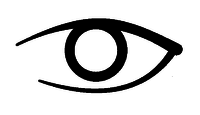Clarityism
| Clarityism | |
|---|---|
 Symbol of Clarity | |
| Belief | Henotheism |
| Deity(ies) |
Unus Daughters of Unus The Chosen One |
| Region(s) | Fortunan Archipelago, areas of large Fortunan populations |
| Founder | Guiliano Bardi |
| Founded | 1658 |
| Origin | Fortunan Mythology |
| High Priest | Francisco III |
| Churches | ~80,000 |
| Followers | ~30,000,000 |
Clarityism is a henotheistic religion originating from the beliefs of Fortunan Mythology. Clarityism is one of Urth's smaller religions, but it plays a major role in the Fortunan Archipelago where it was first founded. Most followers consist of Fortunans with over 30,000,000 followers, the majority located within Fortuna. Clarityism was formed based off the works of Guiliano Bardi where Unus, one of the creators of Urth, created the islands now known as the Fortunan Archipelago as a haven for his chosen people. In recent years Clarityism has been used by the Fortunan Government to set High Commander Tristan Lytle as a deity, also known as "The Chosen One" by Claritists, based off a prophecy by Bardi.
Origins
Fortunan Mythology
Guiliano Bardi
Clarityism was first formed off the works of the prophet Guiliano Bardi in the early 16th century who received visions and prophecies from the being Unus. Following his first recorded vision, Bardi left his home in Emili and set off on a journey on the mainland to better understand who sent him the vision. During his 10 year trip, he experienced other religions such as Islam and Christianity while continuing to receive dreams and visions, all of which he recorded. Once his journey came to an end, Bardi came to believe that the one who spoke to him was Unus, the main deity from Fortunan Mythology. He came to believe that the people of Fortuna were Unus' chosen few to care for, such as other parts of the world had their own higher beings to take care of them. Upon arriving back to his home, his country had already gone through a civil war which left the islands broken in three. Although heartbroken at what happened to his beloved home, Bardi set to work compiling all of his findings, visions, and dreams into a book to be more clearer to understand, he would later name it "The Book of Clarity: A Clearer Understanding of Unus' Plan for Us," better known as just "The Book of Clarity."
Within this book, Bardi twists Fortunan Mythology to where their is on major deity, Unus, that controls the fate of Fortuna instead of multiple deities. Also in the book Bardi shares his visions and prophecies, many of which tie into present events. One such prophecy included that there will be a time where a chosen one would come to reunite Fortuna, most likely coming from his despair of it breaking apart during the civil war. In 1551, Bardi published his book and began having it distributed throughout the islands, all along preaching along the streets. Many began following Bardi and spreading the ideas and beliefs of the book across the archipelago, many beginning to favor its beliefs over their previous religions. By the 1560s, Bardi gained thousands of followers who found this new religion more clearer and understandable for Fortunans. By his death in 1964, his ideas had spread to every corner of the archipelago, the beginning of Clarityism.
Foundation
With the ideas and beliefs set by Bardi beginning to firmly root itself into Fortunan culture, religious leaders decided to come together to set the base of Clarityism. In 1668, religious leaders from around the region came to the Council of Destino where the base of Clarityism was set such as who was head of this religion, which days were to be kept holy, and which chapters should be put in or removed from the Book of Clarity. One of the major debates that took place during the council was on whether there was more than one higher deity, and if so who should they worship. Within Bardi's writings, he accepts that there were other beings at work in other places of the world such as God for Christianity, Allah for Islam, and finally Unus for Fortunans. Bardi also put the many goddesses of Fortuna as merely lower deities of Unus who acted as servants, this was of concern as Unus and the goddesses were held at the same level. Through much debate and a few leaders walking out, these beliefs were accepted as canon for Clarityism. The council would last six months of tiring debate and discussion, but by June 1668 the base of Clarityism was founded and the first high priest, Ferdinand I, was elected to lead this newly created religion.
